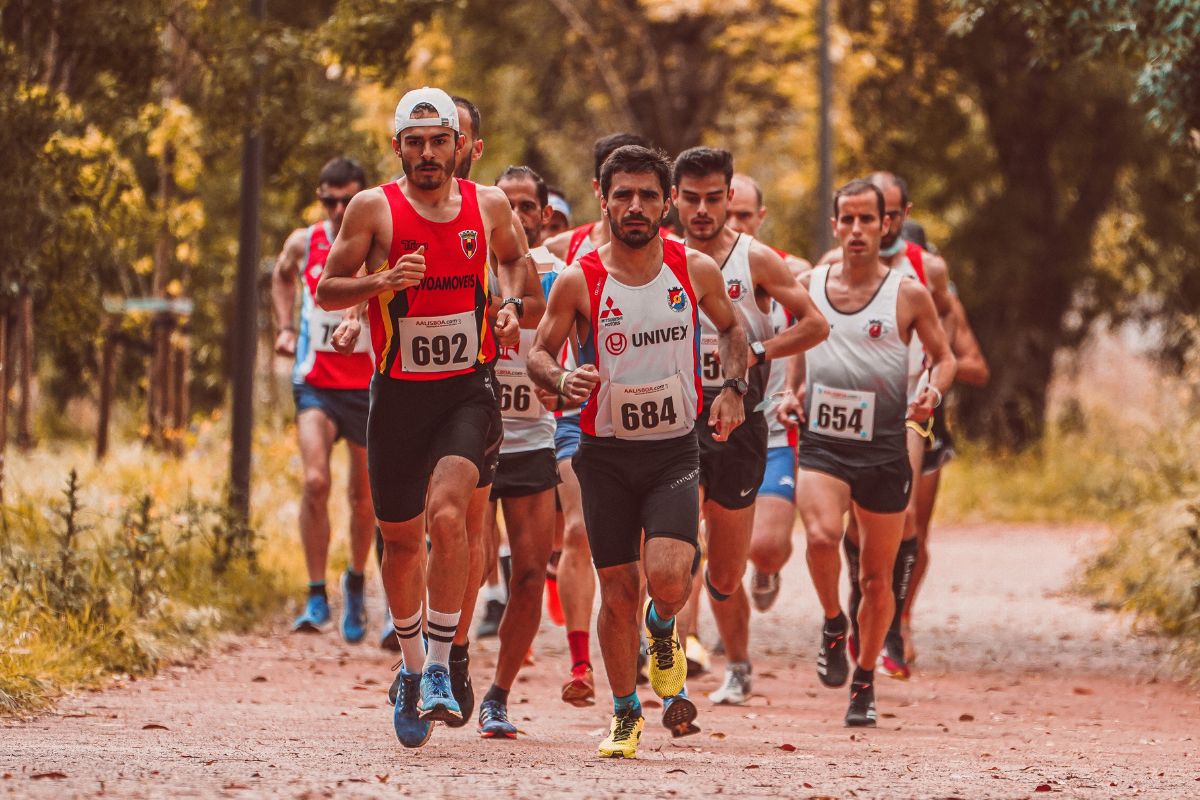Running is an intense, yet enjoyable sport that requires great levels of endurance and skill to be successful. However, it also requires appropriate training and a good understanding in regard to recovery.

With the amount of pressure running has on the body, not recovering correctly can lead to injury, fatigue, and decreased performance.
The pressure is so great that running can be considered a contact sport as it produces forces up to 3 times your body weight on the legs.
With all of this in mind, it’s important to follow the correct steps once you’ve finished running, no matter how big or small your run was.
It doesn’t matter if you’ve just run a marathon or jogged a relaxed 5km, you need to recover effectively.
That’s where we come in!
To help you recover properly, we’ve outlined what you should do after your run in this post. If you want to recover well and keep running to the best of your ability, make sure you stick around!
Perform Static Stretches
Anyone that’s taken part in exercise before, whether it be as part of a running club or with a coach will have been told to stretch. In all honesty, being told to do so can sometimes get a little irritating.
However, no matter what you think of stretching, you simply have to do it. Even more importantly, you have to ensure you do each static stretch properly.
Recovery begins when you start your static stretches. Static stretches give your body an opportunity to cool down, whilst still maintaining its flexibility.
They also help to promote blood flow in the areas that need it most.
This reduces the chance of any muscle tears, fatigue, and cramp. Some of the best static stretches to do include calf stretches, hamstring stretches, quad stretches, and lunges.
You should hold each stretch for 12 to 15 seconds and repeat them 3 or 4 times.
Stay Hydrated

Keeping yourself hydrated after your run is just as important as effectively stretching. You could even keep yourself hydrated as you stretch.
Even though you probably do all you can to have a drink as you run, the pressure running puts on your body still leaves you needing extra hydration.
Hydrating after your run as well as during it is important because it allows the body time to replenish the electrolytes your body has lost through sweat.
It is worth noting that even during colder weather your body will sweat, so make sure you drink plenty.
Colder weather could even lead to a bigger need for hydration as the cool air is very effective at masking sweat.
Without electrolytes, your body won’t function properly. Your muscles will ache and cramp will more than likely occur.
To stay hydrated, we recommend drinking plenty of water, a sports drink, and maybe a hydration tablet. This should give you all you need to replenish electrolytes.
Don’t Forget To Eat
When you’ve finished stretching and have rehydrated yourself, you need to think about getting something to eat.
The optimal window for eating after a run is up to 2 hours. This is especially the case after an intense workout. As a result, planning your recovery meal in advance is a good idea.
During the 2 hours after running, your body is primed and ready to receive nutrients.
Taking advantage of this small window is essential to a healthy, effective recovery. The first meal after your run should consist of protein and complex carbs.
If you have enough time a few hours later, you could then follow your meal up with another smaller meal. This meal should also contain proteins and complex carbohydrates.
Adding plenty of flavor to repetitive meals is a good way to mix things up and keep food interesting.
Avoid eating too late where possible as your quality of sleep could be affected.
Roll Your Muscles

The next step to follow on our list is something a lot of runners have a love-hate relationship with.
While a lot of runners find it pointless, foam rolling is easily one of the most effective recovery methods when it comes to muscle recovery.
Foam rolling the muscles in your legs helps to promote blood flow to the fascia. For those that don’t know, the fascia surrounds your muscles.
By circulating healthy, well-oxygenated blood through your legs, leg pain is reduced and recovery time is sped up.
Of course, your legs and fascia are also kept much healthier. This will improve movement, in turn boosting running performance.
Foam rolling your legs won’t feel comfortable, in fact, it may even hurt a little, but it is important to remember that the process effectively aids recovery.
Take An Epsom Salt Bath
There isn’t too much to say about this recovery method apart from that it helps the body effectively recover after intense exercise.
While no conclusive proof has been discovered, it is believed that Epsom salts and an ice bath help aid recovery and reduce next-day soreness.
Why not give it a go and see how it makes you feel. That is, of course, if you can handle the cold.
Get Plenty Of Rest

Above everything else, getting plenty of rest after a run is an easy way to aid recovery and ensure you’re ready to go next time.
When we say get plenty of rest, we mean a number of different things.
Plenty of rest refers to getting enough sleep at night so that you wake up feeling well-rested and up for the next race. It can mean taking the weight off your legs and relaxing for a while.
Finally, it could also mean taking small power naps throughout the day to keep your body well charged and ready to go.
When it comes to deciding how to rest, whatever works for your body and schedule is the best thing to do.
However, one thing we will say regarding sleep is that at least 7.5 hours of sleep a night is super important.
In Conclusion
Effectively recovering after a run is incredibly important, no matter how long or short your run was.
By recovering correctly, you reduce the chances of any injuries, fatigue, or cramps. You also make yourself feel a lot more alive and physically fit.
In this post, we’ve shown you everything you need to do when you’ve finished running.
While some of the things we’ve spoken about might not be the most enjoyable things to do, they are all important and must be done properly.
Even by missing just one of these things, you increase your chances of poor recovery and injury, so make sure you follow each one as best you can.
- Can Dogs Run Faster Than Humans? (Running With Your Furry Friend) - October 4, 2022
- 10 Doggie Fun Runs You Will Love [Ultimate Guide] - October 4, 2022
- What Are Division Results In Running? - October 4, 2022








